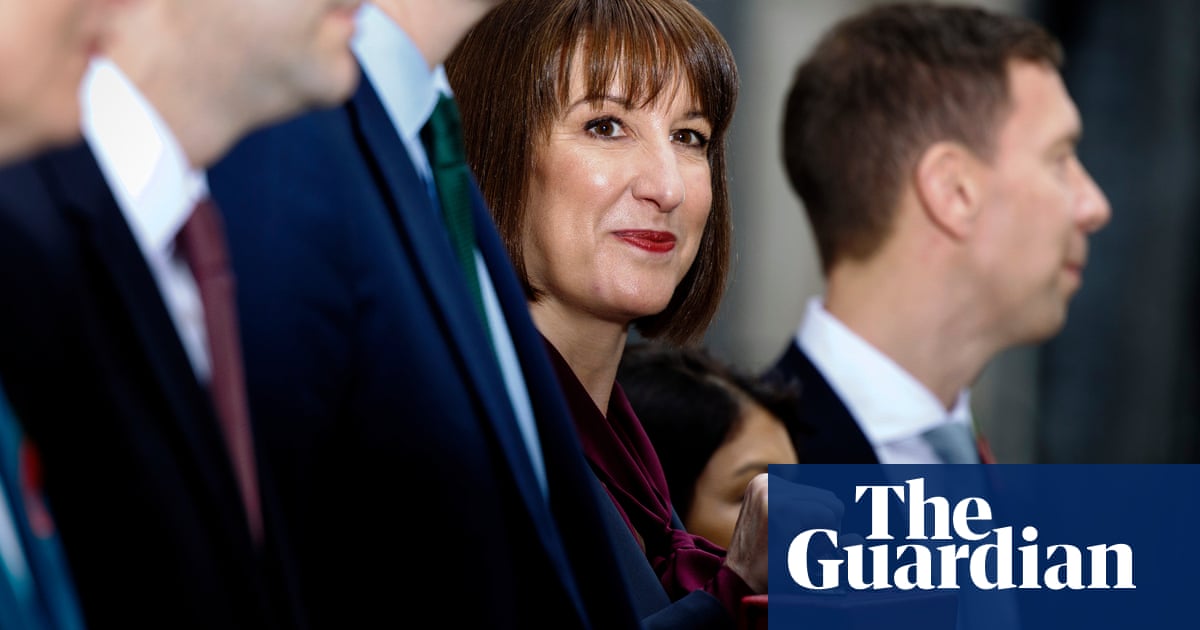Few expected Britain to boom but the GDP figures will worry the Treasury

It was hardly surprising that the chancellor, Rachel Reeves, declared herself “not satisfied” with the news that the UK’s GDP expanded by a measly 0.1% in the three months to September.
Few could have expected Labour to kickstart an economic renaissance from day one, despite its “mission” to deliver the highest sustained growth in the G7.
But the data will worry the Treasury for two reasons: first, it shows the scale of the challenge ahead; and second, it raises the question of whether the grim mood deliberately created over the summer dented confidence and held back growth.
The figures, released on Friday, show that since Labour swept into government in July, the economy has barely expanded. The 0.1% growth in output over the quarter was weaker than the 0.2% expected by market analysts.
Indeed, in the most recent month of September, the Office for National Statistics (ONS) suggested GDP actually contracted, by 0.1%.
September’s fall was led by a decline in manufacturing production. Over the quarter, it was services, mainly retail and construction, that propped up the economy.
Of course, many of Labour’s plans for triggering growth are long term, involving knotty structural problems such as planning and infrastructure. And growth had always been expected to slow, after bouncing back strongly from last year’s brief recession to expand by 0.7% in the first quarter of the year, and 0.5% in the second quarter.
But some business groups and analysts were quick to point the finger at the government.
Reeves’s July statement, aimed at underlining the Conservative party’s heavy responsibility for the parlous state the economy had been left in, pointed to a “black hole” in the public finances and a tough budget ahead.
The former Bank of England chief economist Andy Haldane subsequently suggested her intervention had been “unhelpful economically” because it created “fear and foreboding”.
Responding to Friday’s GDP data release, the CBI’s lead economist, Ben Jones, said “uncertainty ahead of the budget probably played a big part, with firms widely reporting a slowdown in decision making”.
Labour will point to a successful investment summit in London last month as evidence that it has reassured businesses that the UK is ready for growth; and the Treasury believes it had little choice but to roll the pitch before the summer for a budget that was inevitably going to have to raise taxes.
after newsletter promotion
Businesses now have real-world decisions with which to populate their spreadsheets, instead of anxious speculation. Jones, of the CBI, said: “Hopefully this will prove to be a blip.”
Whatever the immediate cause, the weakness of the starting point underlines the difficulty Labour faces.
We have heard less about the G7 growth “mission” recently – apparently Labour advisers believe it fails to connect with voters – but fixing the economy remains essential to the party’s project.
As Simon Pittaway, a senior economist at the Resolution Foundation thinktank put it in response to the disappointing data, “the government’s mission to renew strong economic growth is both extremely hard and absolutely necessary”.
Related
Why investing in women is a vital next step for…
Get Nadine White's Race Report newsletter for a fresh perspective on the week's newsGet our free newsletter from The Independent's Race CorrespondentGet our fre
Business secretary signals major shift on electric car policy to…
In a determined effort to retain Nissan’s manufacturing presence in Britain, Business Secretary Jonathan Reynolds has vowed to implement “substantial c
Joint Statement: Business Secretary and Fujitsu Services Ltd
Business and Trade Secretary Jonathan Reynolds today (Friday 7 March) met chiefs for Fujitsu in Tokyo to begin talks over the cost of redress for victims of th
UK foreign secretary backs multilateral defence funding for Europe
UK foreign secretary David Lammy has said that a new multilateral fund will be needed to secure Europe’s defence as he confirmed that Britain is “open to”













